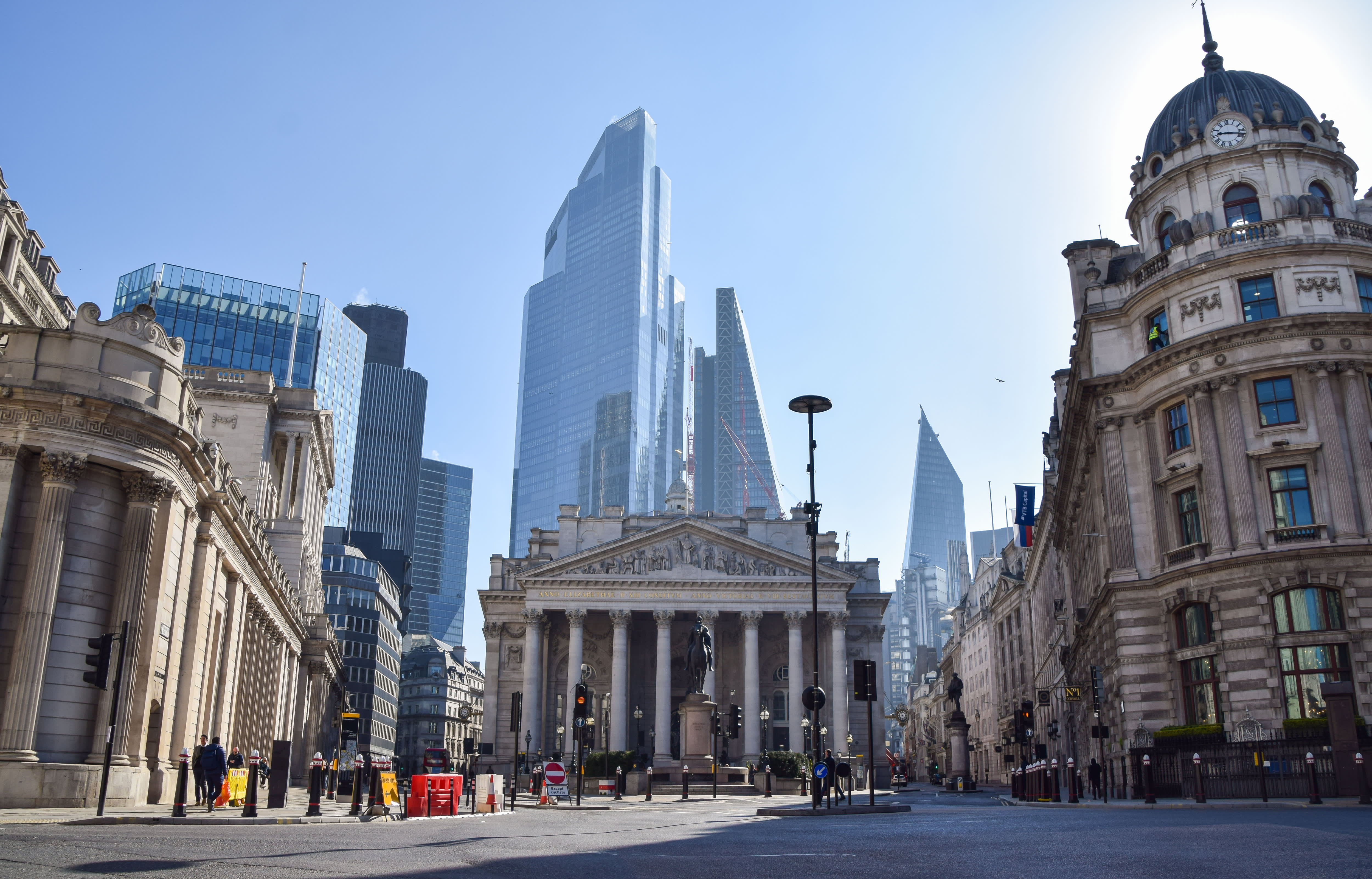
The Royal Exchange and Bank of England are in London.
The Bank of England raised its main interest rate to 0.25 percent from its historic low of 0.1% on Thursday as inflation pressures mount.
The Consumer Price Index rose by 5.1% in November, the highest rate in 10 years, and well above the central bank's 2% target. The Bank now expects inflation to peak at around 6 percent in April 2022, after the majority of the winter period.
257,000 staff were added to payrolls in November, even after the end of the country's furlough scheme.
After the Bank surprised markets by avoiding a rate hike in November, many analysts suggested that the economic conditions were in place to start raising rates.
Most economists expected the Bank Rate to be held at 0.1% going into Thursday's meeting, in light of the emergence of the omicron variant and its rapid spread in the U.K.
At its November meeting, the MPC suggested that if incoming data were in line with its projections, a hike would be needed to return inflation to its 2% target.
The Bank said in its report that recent economic developments suggest that these conditions have been met.
There are signs of greater persistence in domestic cost and price pressures, as the labour market is tight and has continued to tighten.
The Monetary Policy Committee voted in favor of the 15 basis point hike, while unanimously voting to maintain the government bond-buying program at its target stock of £875 billion.
Ahead of the vote, the International Monetary Fund urged British policymakers to avoid action bias.
The U.K. economy is now expected to be around 1.5% off its pre-covid level by the end of the fourth quarter of 2021.
The Bank said that the impact of the Omicron variant, along with additional measures introduced by the UK Government and Devolved Administrations, will push down on GDP in December and in the first quarter of 2022.
The experience since March 2020 suggests that the waves of Covid appear to have had less impact on GDP, although there is uncertainty around the extent to which that will prove to be the case on this occasion.
The 8-1 vote to hike rates was surprising given the emergence of omicron and uncertainty over its near-term growth impact, said Hussain Mehdi, macro and investment strategist at HSBC Asset Management.
There were reasons for immediate action. The labour market is tight, and Omicron has the potential to increase supply-side constraints in goods and labour.
There are upside inflation risks that are likely to push the MPC into further action.
Growth in the U.K. economy slowed sharply in December as the omicron variant hit businesses, according to the Purchasing Managers' Index.
The Bank feels vindicated in hiking rates just before Christmas despite the steep incline in Covid cases, according to the portfolio manager at Quilter Investors.
The Bank felt it could no longer stay on the pedal despite the risks that are now out there in the economy, because of the communication gaffes it made.
The Bank was caught in a perfect catch-22 situation, where it would be criticized for hurting an uncertain recovery if it hiked rates, and for letting inflation run loose if it did not.
Cominetta suggested that the Bank of England should hike now.
